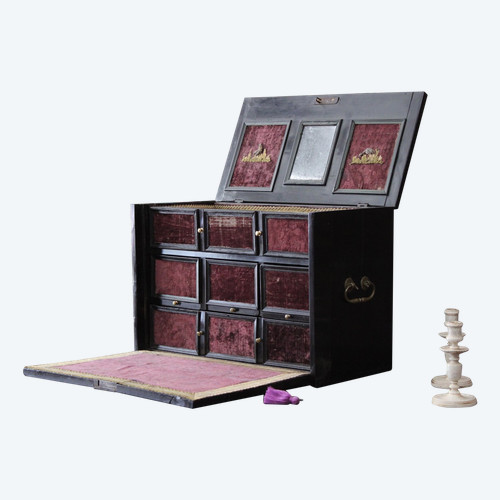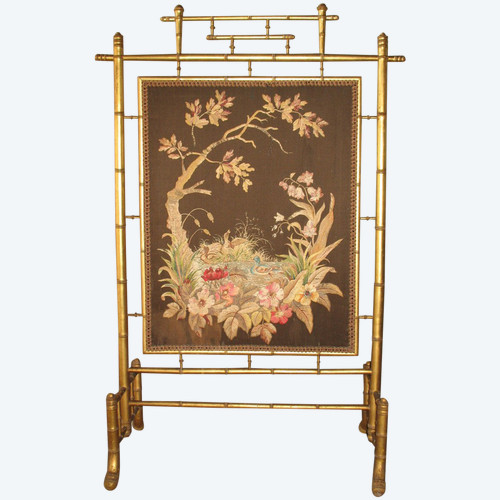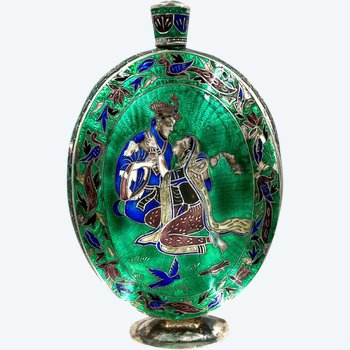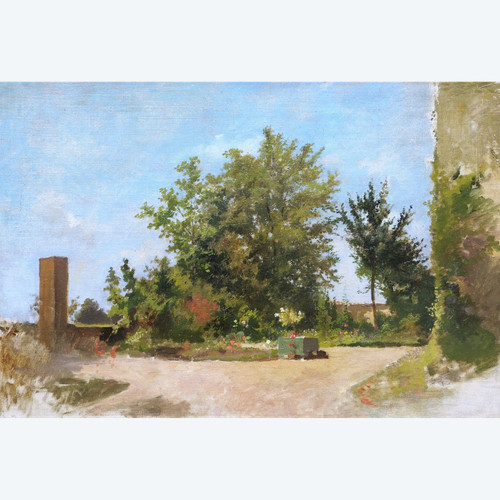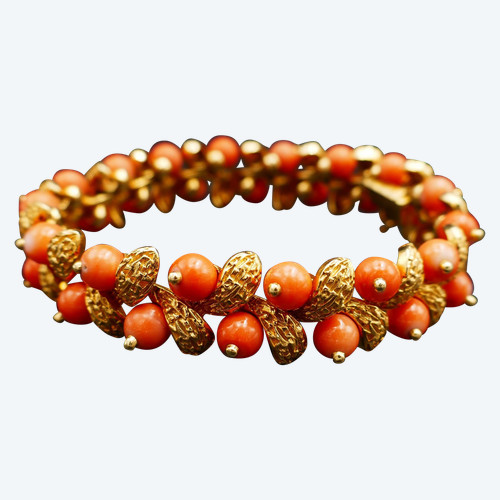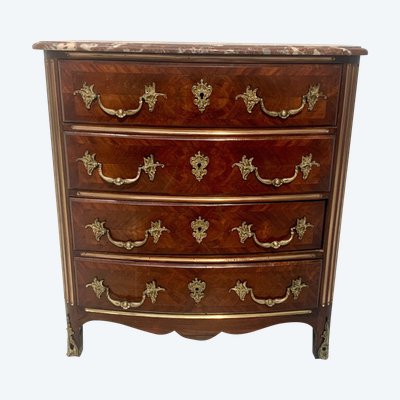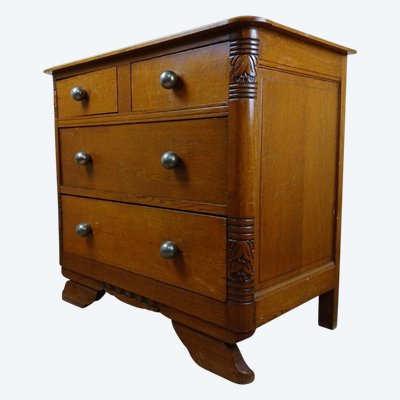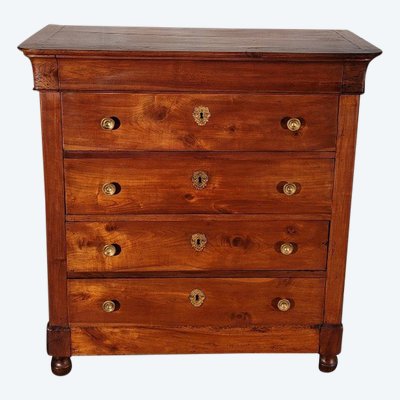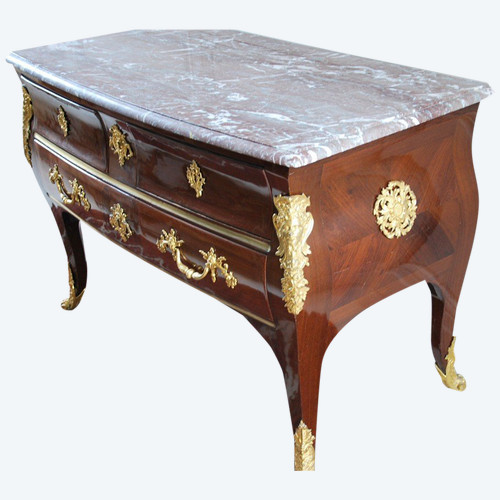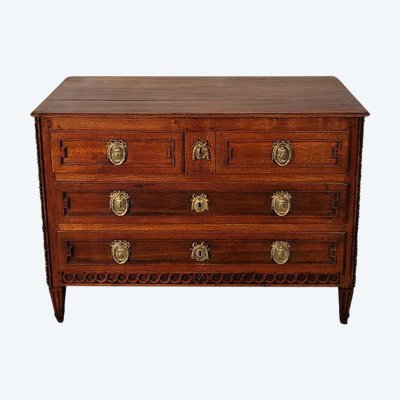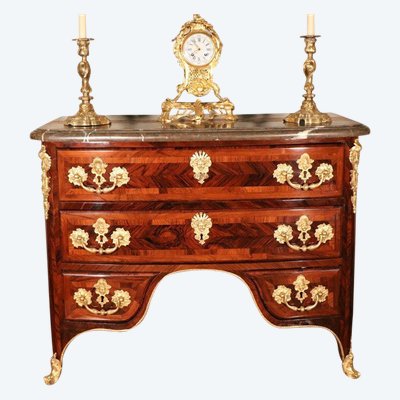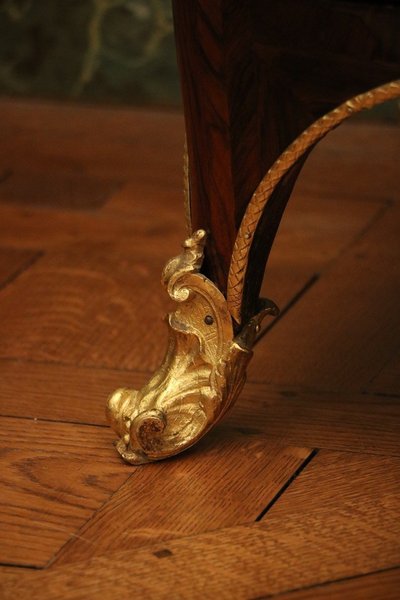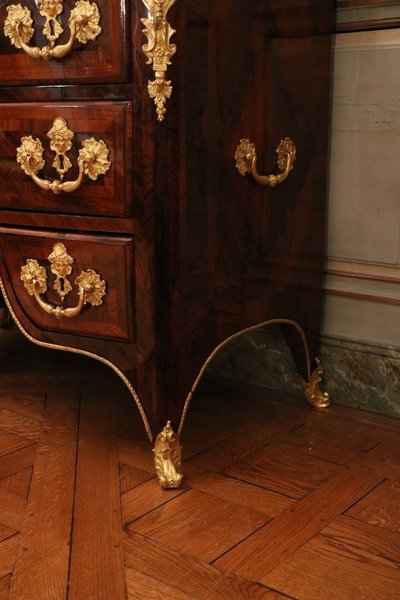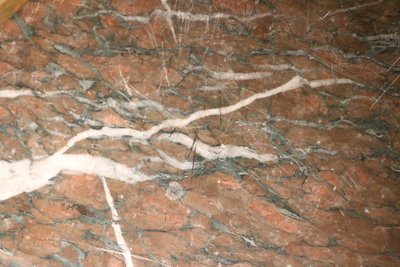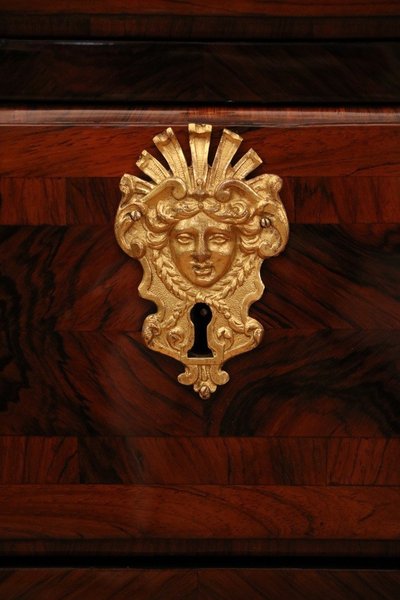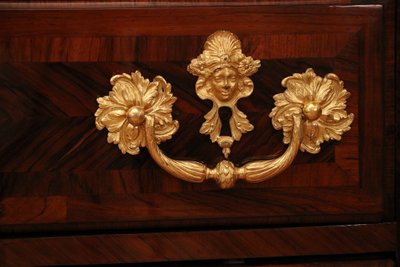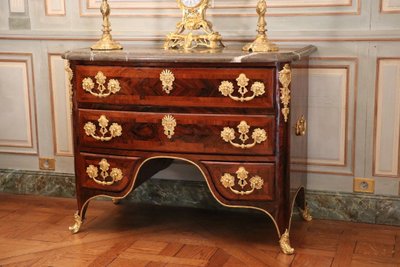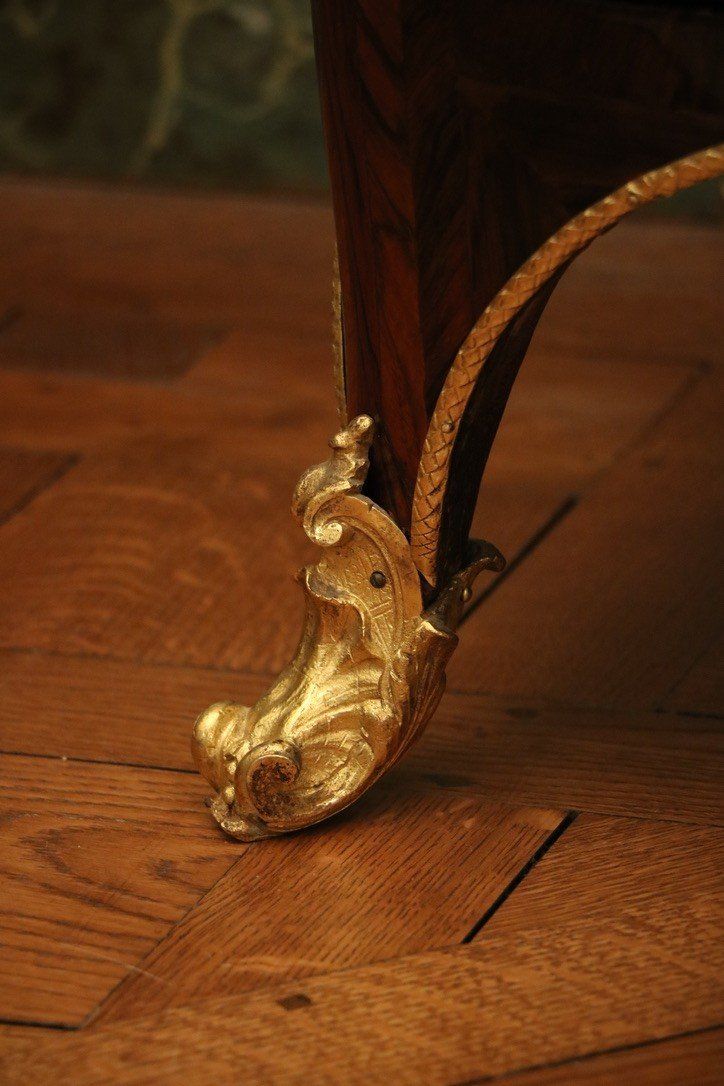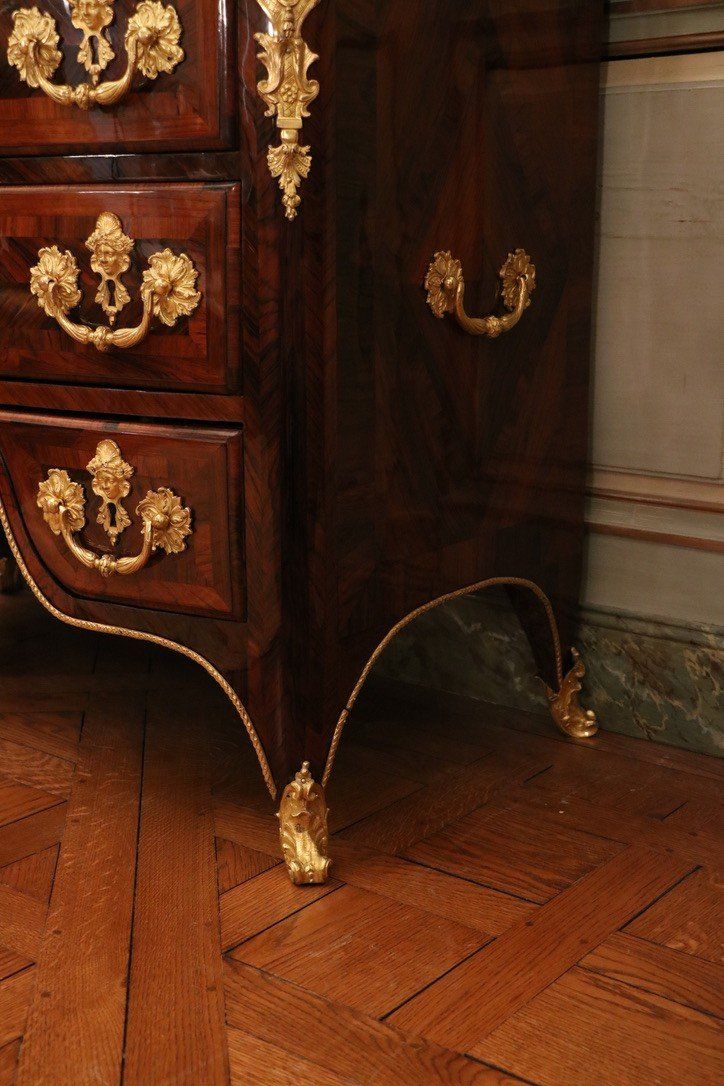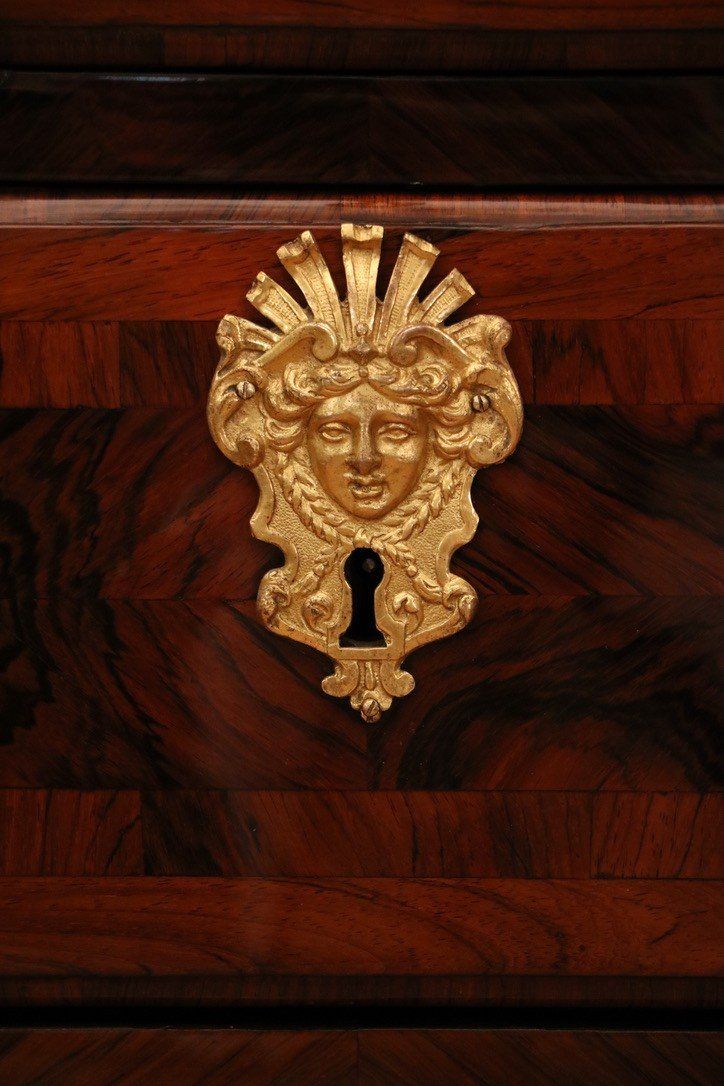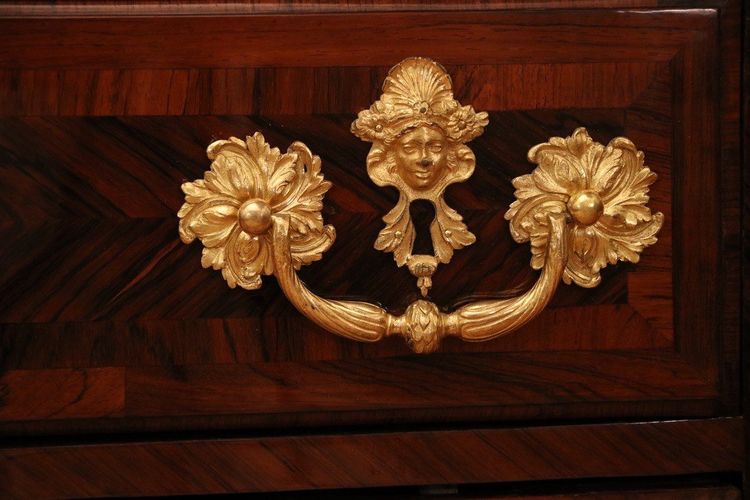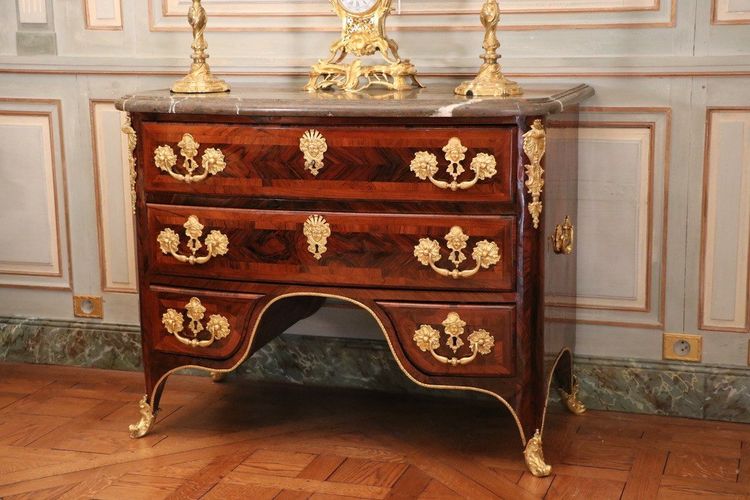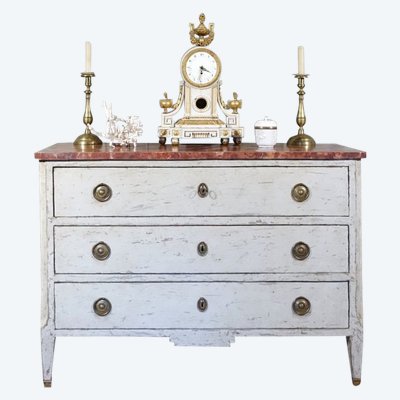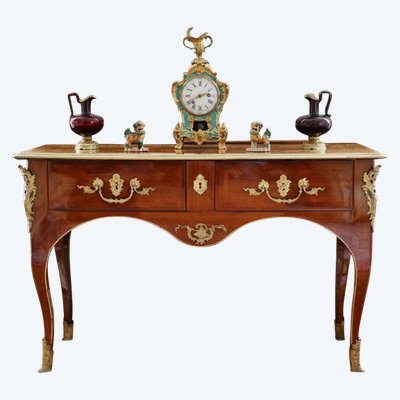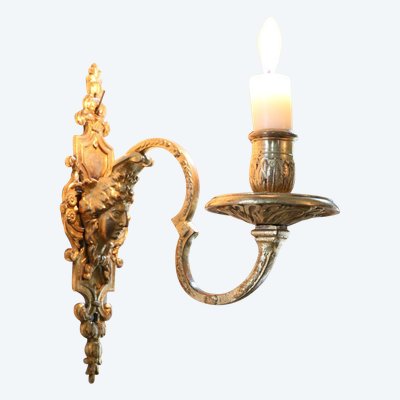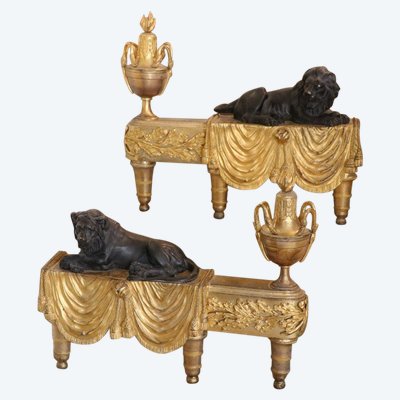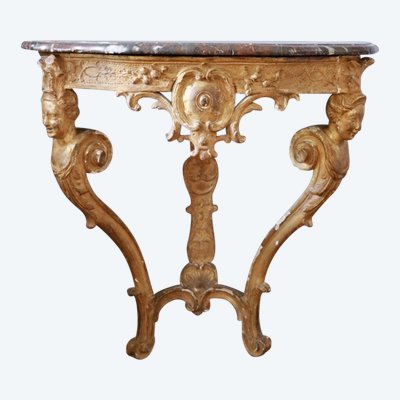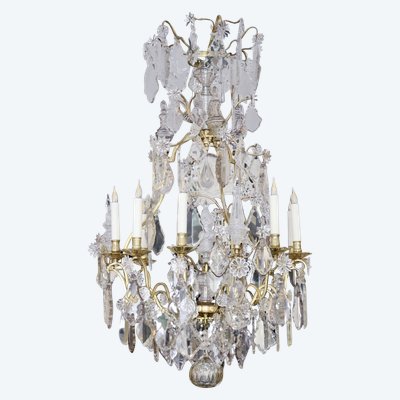This description has been translated and may not be completely accurate. Click here to see the original
Rosewood bridge chest opening with four drawers on three rows and resting on four small feet. The chest of drawers is trimmed with gilded bronzes on a diamond-tipped marquetry base in the foot shoes, keyhole escutcheon, Ceres mask motif, leafy pull handles, falls, bronze fillet around the perimeter and pull handles on both sides. The commode's curved belt forms a "bridge" (the middle drawer is missing).
The chest of drawers is topped with a red Campan griotte marble top.
Attributed to Etienne Doirat.
Regency period.
Restoration, marble restored, two side handles missing.
H. 84 x W. 107 x D. 60 cm
The piece of furniture in our study is a commode that we can date to the Regency period. Several elements give us clues as to its dating, but also to its author. We can easily attribute this commode to the cabinetmaker Etienne Doirat (1675-1732).
It is a "bridge" commode (so called because of the shape of its frame, which forms a "bridge"). The curves on the front, sides and uprights indicate that the Louisquatorzian style is no longer in use. These assertive curves are the result of a highly technical approach. In the first third of the eighteenth century, this know-how continued to develop and improve.
The richness of the bronzes also marks the production of this period. Not only did they reinforce the solidity of the furniture, they also played a decorative role. Fashionable motifs were inevitably shells and figure heads, as our chest of drawers demonstrates. What's more, it's thanks to its bronzes that we can attribute it to the talented cabinetmaker Etienne Doirat. His output includes a large number of commodes. According to Jean Dominique Augarde, only his late works are stamped (it should be remembered that stamping was not compulsory until 1743). Thus, several commodes bearing "his signature" remind us of the work in our study. This is the case of lot 25 of the March 14, 2018 sale at Christie's London, and of the signed commode reproduced in Mr. Jean Dominique Augarde's article in "Etienne Doirat, Menuisier en ébène" in the J. Paul Getty Museum Journal.
Moreover, the importance given to the friezing of the marquetry can only confirm the attribution to Etienne Doirat. He was particularly fond of highlighting veneer woods, which he carefully selected from among the most prestigious species (such as amaranth, violet wood, rosewood and rosewood). Diamond points are his favorite motifs.
This chest of drawers is so full of detail, from the bronze fittings to the milling, that we can't help but notice its high quality.
Ref: 1EEWD0RGRK
 Blackened wooden cabinet, 17th century.
2.700 € EUR
Blackened wooden cabinet, 17th century.
2.700 € EUR

